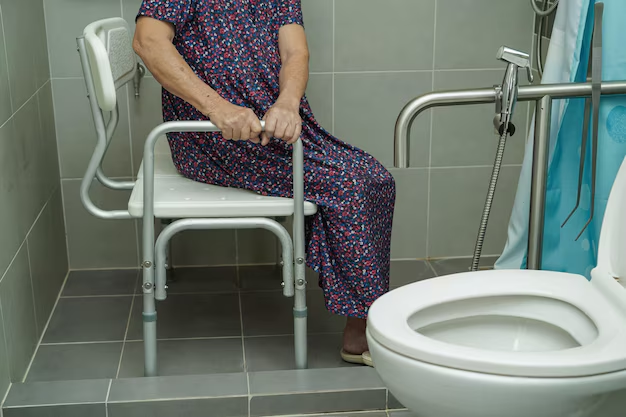Your Guide to Does a Uti Cause Incontinence
What You Get:
Free Guide
Free, helpful information about Incontinence FAQ and related Does a Uti Cause Incontinence topics.
Helpful Information
Get clear and easy-to-understand details about Does a Uti Cause Incontinence topics and resources.
Personalized Offers
Answer a few optional questions to receive offers or information related to Incontinence FAQ. The survey is optional and not required to access your free guide.
Can UTIs Lead to Incontinence?
When dealing with a sudden lack of bladder control, many wonder: can a urinary tract infection (UTI) really cause incontinence? This question is more common than you might think, especially considering how disruptive both conditions can be to daily life. Let’s explore the connection between UTIs and incontinence, and what you can do if this becomes a concern.
Understanding UTIs and Incontinence
Urinary tract infections are bacterial infections that affect parts of the urinary system like the bladder, kidneys, ureters, or urethra. This common condition is notorious for causing discomfort, frequent urges to urinate, and sharp pain while peeing. But can a UTI really trigger incontinence, defined as an involuntary leakage of urine? The answer is yes.
When your body fights off a UTI, inflammation can occur, irritating the bladder and/or urethra. This irritation might increase bladder spasms, leading to a loss of bladder control or a sudden strong urge to urinate before you're able to reach the restroom. While not everyone with a UTI will experience incontinence, it is not an uncommon side effect.
What You Can Do About It
If you suspect a UTI is causing your incontinence, see a healthcare professional as soon as possible. They can confirm if a UTI is present through testing and offer antibiotics to clear the infection. Once treated, most UTI-induced incontinence should resolve.
However, if incontinence persists, consider consulting a urologist. They can assess whether other underlying conditions might be exacerbating the issue, such as weak pelvic floor muscles or a bladder dysfunction.
Proactive Measures and Resources
Dealing with a UTI and incontinence can be stressful, but proper steps can alleviate these problems. Ensuring adequate fluid intake, promoting proper hygiene, and consuming cranberry products might help reduce UTI recurrence. Pelvic floor exercises, like Kegels, can also strengthen muscles and improve bladder control over time.
Moreover, if medical bills start to pile up, or if you require long-term solutions that might be financially cumbersome, exploring financial assistance options can be beneficial.
Valuable Programs and Opportunities
To ease the financial burden of managing these conditions or seeking further health improvements, consider exploring the following resources:
💼 Medicaid: For eligible individuals, Medicaid can cover doctor’s visits, medications, and even some preventive care.
🏥 State Health Insurance Assistance Program (SHIP): Offers free counseling to help comprehend Medicare and Medicaid benefits, aiding in cost management.
💳 Low-Interest Credit Options: Certain credit unions and community banks offer low-interest loans or credit cards aimed at covering healthcare expenses.
📚 Educational Grants: For those needing a career shift due to a health condition, many states offer grants for educational programs that can foster new skills.
💰 Charitable Programs: Some non-profits provide grants or financial assistance specifically for individuals facing recurrent medical expenses.
Taking advantage of these resources can support not just your health but also your financial well-being—empowering you to tackle any challenges that UTIs or incontinence may bring.
What You Get:
Free Incontinence FAQ Guide
Free, helpful information about Does a Uti Cause Incontinence and related resources.

Helpful Information
Get clear, easy-to-understand details about Does a Uti Cause Incontinence topics.

Optional Personalized Offers
Answer a few optional questions to see offers or information related to Incontinence FAQ. Participation is not required to get your free guide.


Discover More
- a Patient You Are Caring For Uses Incontinence Briefs
- Are Incontinence Products Tax Deductible
- Are Incontinence Supplies Covered By Medicare
- Are Incontinence Supplies Tax Deductible
- Can a Bladder Infection Cause Urinary Incontinence
- Can a Kidney Stone Cause Incontinence
- Can a Urinary Tract Infection Cause Incontinence
- Can a Uti Cause Incontinence
- Can Constipation Cause Incontinence
- Can Constipation Cause Urinary Incontinence
